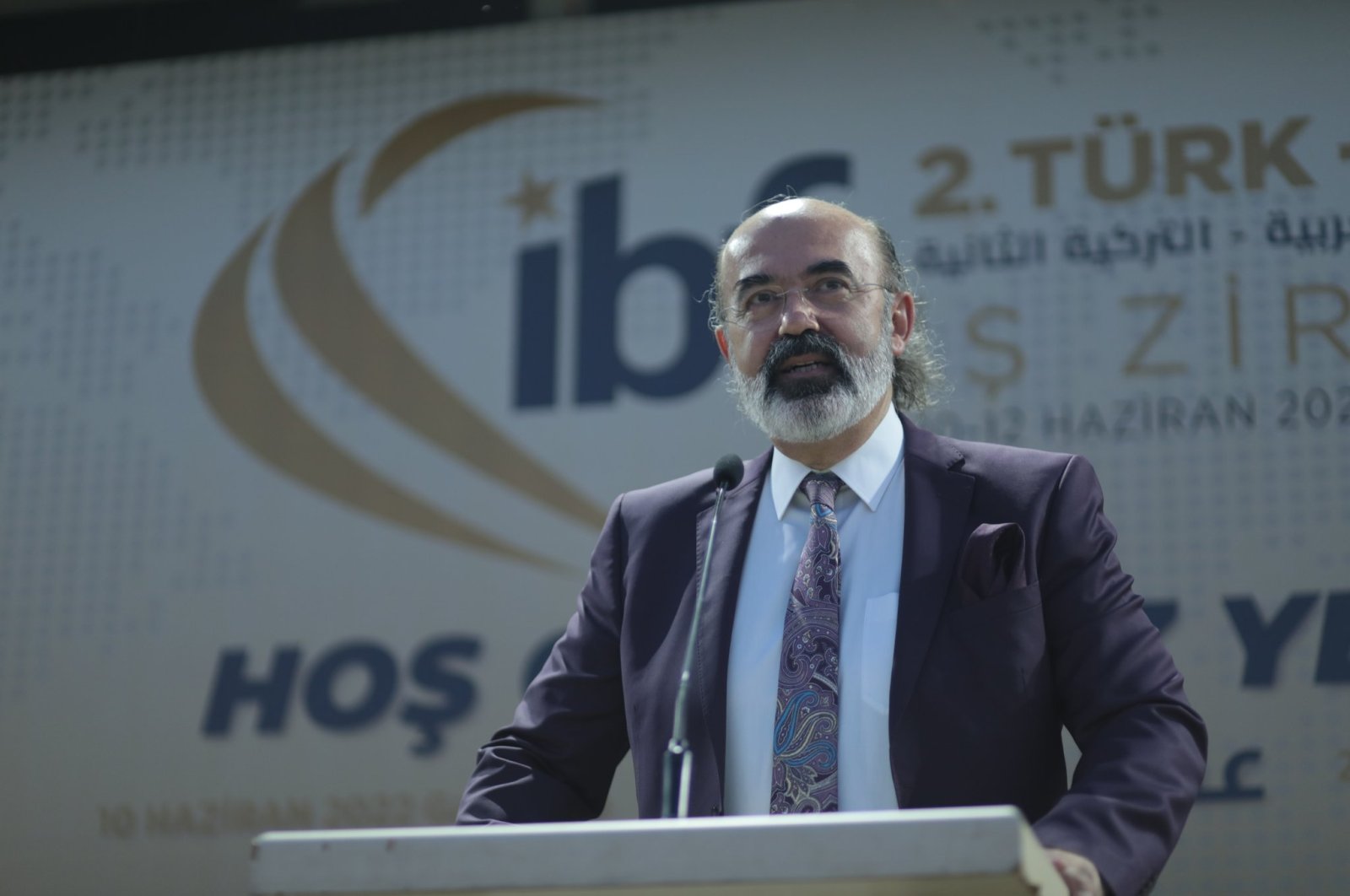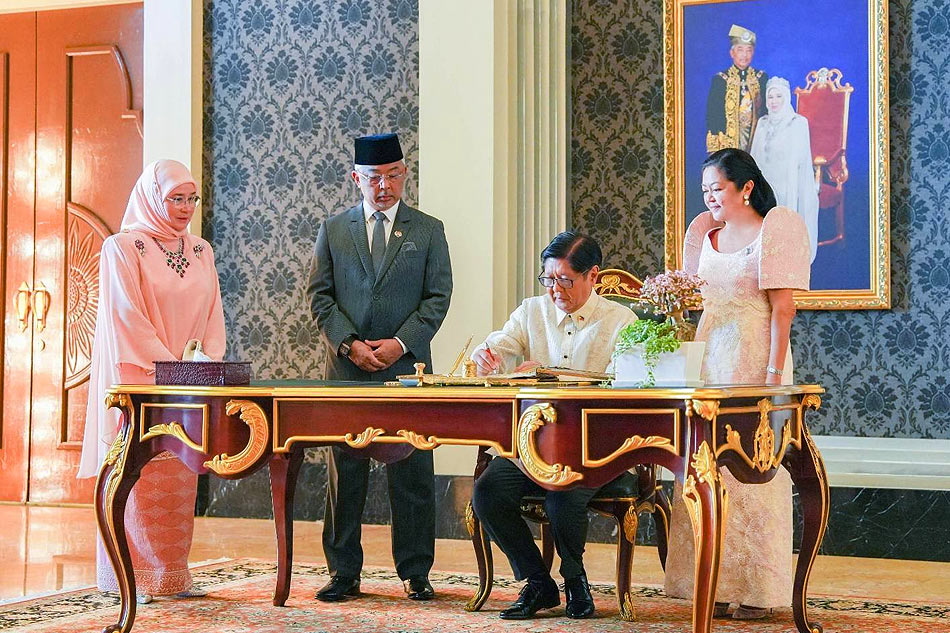From Nor Baizura Basri
ISTANBUL, Nov 8 (Bernama) — Malaysia and Turkey have agreed to
join forces to develop uniform halal global standards, a move that can
pave the way for the Organisation of Islamic Conference (OIC) countries
to tap the growing halal market which currently is dominated by
non-Muslim countries.
This consensus was reached by trade ministers at the end of the
ministrial meeting of the Standing Committee for Economic and
Commercial Cooperation (COMCEC) Saturday, Deputy Minister for
International Trade and Industry Datuk Mukhriz Mahathir said.
“We have proposed to lead member countries in developing uniform
halal standards and this has been supported by a few influential member
countries like Saudi Arabia,” he said.
“After much deliberations between member countries, they have
decided to let Malaysia and Turkey work together by leveraging on their
experiences to develop uniform halal standards for OIC countries,” he
told Malaysian reporters after the COMCEC ministerial meeting here.
The ministerial meeting is being held prior to the inaugural
COMCEC Economic Summit on Monday which is being held in conjunction
with the 25th Anniversary of COMCEC and the 40th anniversary of the OIC.
Deputy Prime Minister Tan Sri Muhyiddin Mohd Yassin will be leading the Malaysian delegation to the summit.
Mukhriz said with the outbreak of H1N1, there has been an
increasing awareness about how halal food products are hygenically
processed, thereby boosting demand for halal products from non-Muslim
coutries.
“OIC member countries realise there is a vast potential to venture
into the global halal food industry and that they will be left out if
they are not fast enough to implement global uniform halal standards,”
he said.
Halal foods currently account for 17 percent of the global food
market and the global halal food market is expected to increase to
US$642 billion in 2010.
Malaysian exports of halal food products to the OIC countries,
which increased significantly to about US$640 million in 2007, is
projected to continue to rise to US$900 million this year.
Mukhriz said the global halal industry was not only for halal
foods but includes cosmetics, logistics as well as Islamic banking and
financial services.
“We hope to come out with some kind of framework of the standards
at the COMCEC meeting next year, which likely will be the first draft
that will outline a timeframe,” he said.
Malaysia was the first OIC nation that mooted the idea of having
uniform global halal standards in 2004 at the 32nd Islamic Conference
of Finance Ministers in Yemen but it faced resistance from other OIC
member countries which were not prepared to institute such a big change.
On another note, Muhkriz said the food crisis, energy crisis as
well as ways to increase intra-trade between OIC countries were among
other issues discussed by the trade ministers.
“We hope to get political will from the leaders to implement a
trade and investment system that can benefit all OIC member countries,”
he said.
Muhyiddin, who arrived early Sunday morning, is expected to
deliver a statement on the achievement of COMCEC, the enhancement of
intra-OIC trade and investment, promotion of Halal standards as well as
provide a review of the world financial system and role of Islamic
Finance at the summit.
Senior officials and trade ministers who converged here for the
past two days discussed several critical issues crucial to the
development of the Ummah in OIC member nations.
Diplomats said they were hoping for the implementation of the
Trade Preferential System Among the OIC (TPS-OIC), which could further
increase intra-trade among OIC countries by 2015.
So far, 10 countries, including Malaysia, have ratified it with Bangladesh being the latest to come on board.
The Preferential Tariff Scheme (PRETAS), the protocol for the
TPS-OIC, would be the concrete mechanism where trade barriers among OIC
countries would be decreased within a specific time-frame in order to
establish the TPS-OIC.
TPS-OIC, once implemented, expects to expand intra-OIC trade among OIC countries by 20 percent by end-2015.
Bilateral trade between Malaysia and the OIC rose 26.3 per cent last year to RM120.3 billion from the previous year.
Exports rose 28.1 per cent to RM67.6 billion while imports rose 24.1 percent to RM52.7 billion from last year.
For the January-August period this year, trade with the OIC
amounted to RM64.3 billion with exports valued at RM38.8 billion and
imports at RM25.5 billion.
Malaysia’s major exports to the OIC were palm oil, petroleum and
petroleum products and miscellanous manufactured goods while major
imports were petroleum and petroleum products.
Approved investments between 2001 and August 2009 with
participation of OIC member countries in the manufacturing sector in
Malaysia amounted to RM8.7 billion comprising the manufacture of food,
textiles and chemical products.
Malaysia’s investments in the OIC are mainly in the plantation
sector, oil and gas related industries as well as in construction.
— BERNAMA



